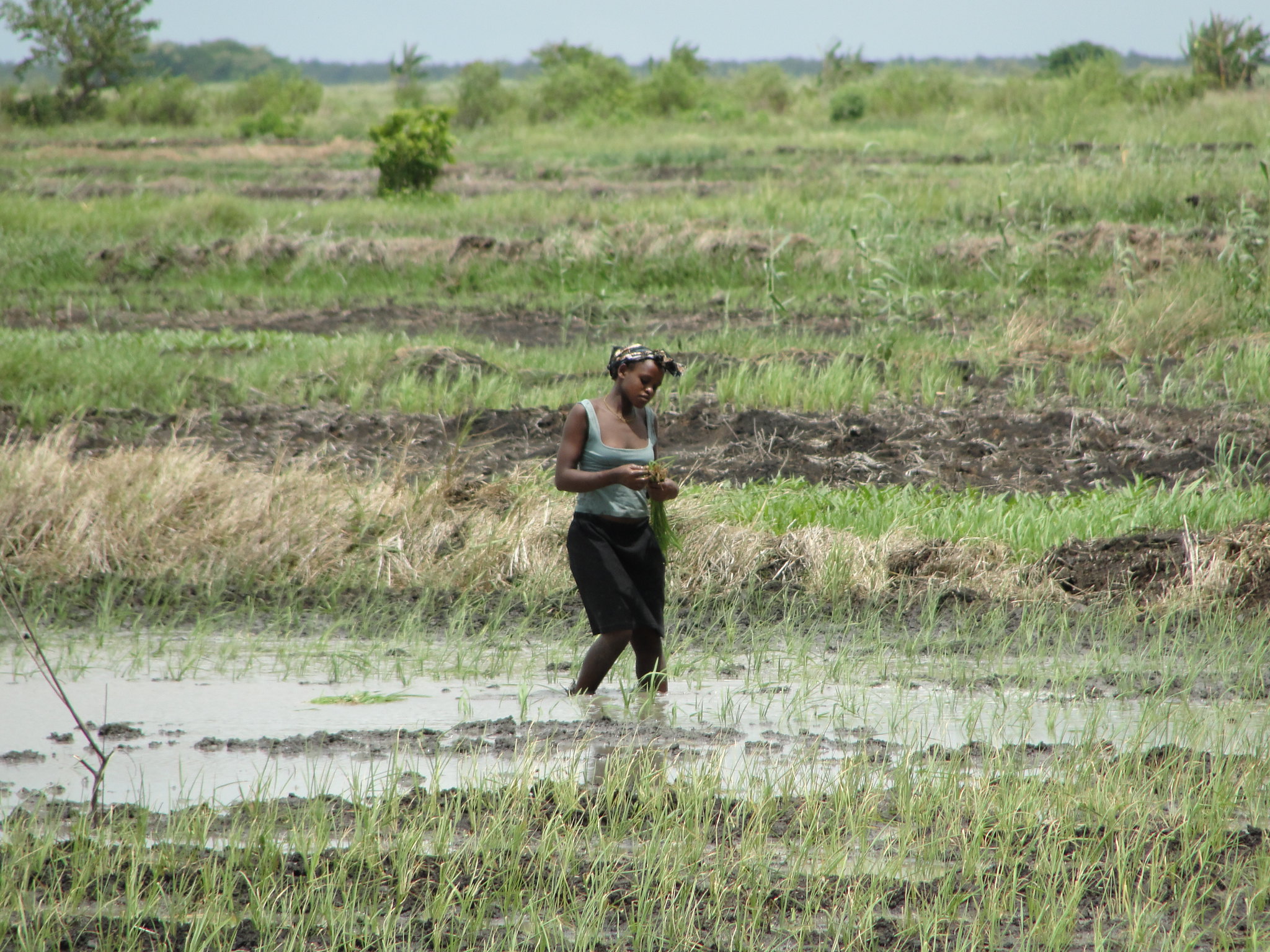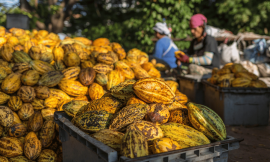The United Nations Sustainable Development Goal (SDG) 5 calls for achieving gender equality and the empowerment of all women and girls. By successfully leading their own agricultural enterprises, women across Africa and Asia have shown what it takes to reach gender equality in agriculture: a shift in normative gender views accompanied by appropriate action will prompt the growth of opportunities women need to exercise leadership and significantly influence agribusiness dynamics.
Agricultural success for women will help to achieve not only SDG 5 but also relevant economic, environmental and social SDGs that seek to end hunger (SDG 2), promote productive employment (SDG 8), mitigate climate change (SDG 13), and protect life on land (SDG 15).
In its efforts toward these SDGs, we have found that the following initiatives have generated the best results for women’s empowerment in agriculture: business starter kits, village savings and loan associations (VSLAs), diversification strategies and beneficial agricultural practices.
A sustainable business starter model for women farmers
For example, after Kenyan soybean farmer Lilian Mwanga employed a business starter kit, she went from growing soybeans only for personal consumption to processing them into different products, increasing her income. This sustainable business starter model allows women to pay for their equipment as they earn, until they own it. Since implementation, Lilian has obtained more land to increase her production, and she has begun assisting other women in their own endeavours.

To finance agricultural ventures and more, Alice Dialéké, president of the Tend Cooperative in Côte d’Ivoire, Aminata Bonkoungou, CEO of business support services bureau Association Promo Monde Rural (APMR) in Burkina Faso, and Juliana Zangina, an aggregator in Ghana, encourage women to use the VSLA system to their advantage.
Through the timely credit provided by the VSLA system, rural women can strengthen their access to markets and improve household nutrition without relying on high-interest bank loans. The funds enable them to invest in agricultural activities, purchase inputs on time and expand small businesses that supply fresh, nutritious food within their communities.
Additionally, diversifying agribusinesses creates opportunities for excluded women to participate in value chains, strengthening both income and community resilience. Amina Muhammad Sani, founder of Mix Condiment Paste Ltd. in Nigeria, demonstrates this by structuring her value-addition and food processing activities around an off-take system, providing secured access to market for female producers of tomatoes, peppers and onions. Mix Condiment Paste Ltd. processes these into tomato paste and powder, increasing shelf life and reducing post-harvest losses.
Amina also established a cooperative that benefits from structured, shared access to solar-powered drying facilities. To fully integrate her ventures within the value chain, Amina mobilised support and grants to launch an out-grower program that will provide seeds and other inputs, and she plans to introduce shared greenhouse ownership to enable year-round vegetable production for women in her community.
Enhancing productivity and growing businesses
In addition to strengthening market access and connection, empowering women in agriculture begins at the farm level, where learning beneficial techniques helps them enhance productivity and grow their businesses. For example, in South Sudan, Rachel Ayen Madit and her family managed both livestock and crop production, but they often faced periods of severe food shortages during the lean months of the year.

By learning how to produce organic manure from livestock waste and crop residues, Rachel turned everyday materials into practical solutions for improving her land. Applying these techniques to her sorghum and groundnut fields, she improved soil fertility, increased yields and strengthened her crops’ resistance to drought.
The results went beyond the field. With more food to feed her family and surplus fodder to support her animals, Rachel has gained greater stability and confidence in managing her household needs, while her increased production has helped her boost her income. She now shares her experience with members from her farming group, showing how simple, locally adapted solutions can make farming more profitable and sustainable.
These women’s stories reflect their own determination and drive for success, supported by inclusive, collaborative approaches applied across multiple countries in Africa and Asia. Such models directly contribute to SDG 5 on gender equality, while also advancing efforts to end hunger and achieve food security (SDG 2), promote productive employment and sustainable economic growth (SDG 8), address climate change (SDG 13) and protect land and biodiversity (SDG 15).
Supporting women’s empowerment in agriculture, especially focusing on women in rural areas, maximises its impact in agricultural value chains and helps secure an equitable and sustainable future for all.
Header photo credits: IFDC/Flickr






